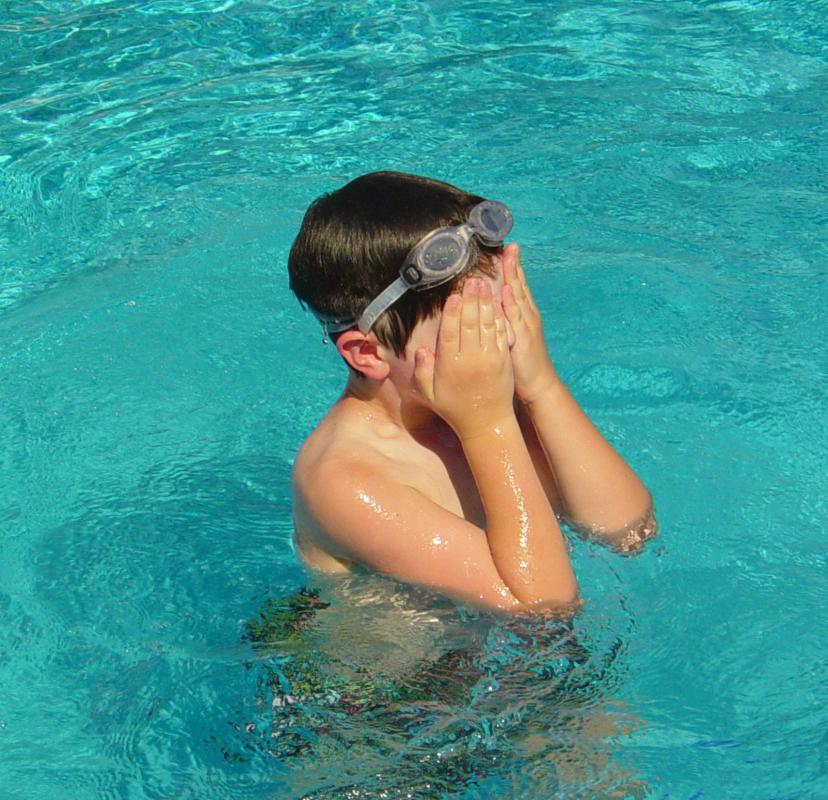At WiseGEEK, we're committed to delivering accurate, trustworthy information. Our expert-authored content is rigorously fact-checked and sourced from credible authorities. Discover how we uphold the highest standards in providing you with reliable knowledge.
What Is a Natural Pool?
A natural pool is a swimming pool that does not contain the usual chemicals or an mechanical filtration system. These natural, or organic, pools are commonly found in Europe, Asia, and Australia. A natural pool is maintained through natural resources such as a plant-derived filtration system. With a natural swimming pool, there will be no additives such as chlorine. Fiberglass and concrete will not be used around the base of the pool and instead will be replaced by clay and gravel.
Most people choose a natural pool to be environmentally friendly. A natural pool will provide aquatic life, such as frogs, with a natural habitat. These types of pools also typically will use aquatic plants that ward off harmful organisms, while nourishing beneficial bacteria and microbes with oxygen.

Contrary to what many people believe, it is not extremely expensive to construct a natural, chemical-free pool. Experts estimate building a conventional pool with a manufactured filtration system may be considerably higher in cost. A natural pool also requires less maintenance than traditional swimming pools. For one thing, the natural pond or pool will not need to be drained and refilled annually.

With many experts believing there is a link between chlorine and cancer, natural swimming environments have become more acceptable and even preferred in many areas of the world. Natural swimming pools have been constructed for residential use as well as public swimming pools.
The ecosystem of a natural pool will generally need sunlight to flourish. This is why natural pools have relied on an outdoor environment to thrive. With cutting-edge advancements, however, natural systems are being developed for indoor pools as well.
Many people refer to the biological filtration of a natural pool as being organic. While natural pools do not require regular water testing, there is a drawback involved in constructing an all-natural swimming pool. It may be difficult to find a contractor skilled at constructing natural pools. This is especially the case in North America, where these pools are uncommon. Hiring professionals may be costly due to the scarcity of contractors with skills in natural pool construction.
AS FEATURED ON:
AS FEATURED ON:












Discuss this Article
Post your comments